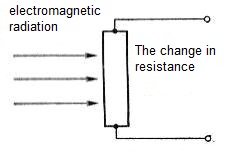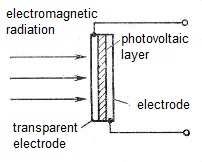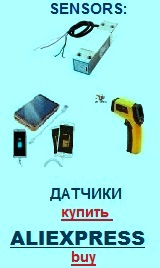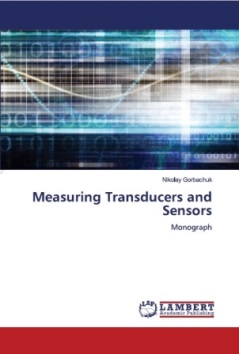Transducers, gauges, sensors - Information portal © 2011 - 2023 Use of material is possible by placing an active link
Physical basis of the transformation of the measured parameters
Ionizing radiation
Photo-electric transducers
Photo-electric are such primary measuring transducers, which react on an electromagnetic radiation, falling on the surface of transforming element. A radiation can be visible, i.e. light, and also to have a large or less wave-length and be invisible. Three basic types of photo-electric transducers are known: two from them officially classified as semiconductor devices (photo-electric and photos semiconductor).
Home >> Photo effects, light >> the Photo-electric transducers
русский / english
• Information about various converters and sensors of physical quantities, parameters of various physical processes is presented.
• Electrophysical properties and effects in various electrical materials.
• Theory, experimental results, practical application
Fig. 8. A photo is conducting transformation
Fig. 9. Solar element as an example of photo-electric transformation
A photo is conducting transducers
These transducers convert the change of measurand into the change of resistance of the used material (fig. 8). In spite of that used materials are semiconductor, photo conducting transducers not always are semiconductor devices, as they do not have transitions between the different types of semiconductors. Such transducers are named passive, i.e. need external feed. Frequently their name characterizes the type of the used transformation, for example photosensitive resistors.
Resistance of material is the function of closeness of basic charge carriers, and so as a closeness increases with growth of intensity of radiation, then conductivity increases. As conductivity is back proportional to resistance, it is possible to conclude that resistance is the reverse function of intensity of irradiation. The value of resistance at a complete irradiation makes in general case 100- 200 Ohm, and in complete darkness this resistance equals MOhm. Such materials, as sulfide of cadmium or selenid of cadmium, are mostly used in the construction of depending on light resistors.
Solar elements
Solar elements are photo-electric transducers which convert the radiated electromagnetic energy into electric, i.e. the change of measureable value of radiation will be transformed in the change of output tension (fig. 9).
The construction of transducer plugs in itself the layer of photo sensible of high-resistance material, placed between two conducting electrodes. One of electrodes is executed from very thin material through which a radiation passes and gets on photo sensible material. At complete illumination one element produces output tension between electrodes about 0,5 V.
As a photovoltaic layer (Fig.9) typically use gate semiconductor solar cells (photovoltaic cells with locking layer). See: Design gate photocells
One of the most important parameters of the photocell, which is used as an electrical energy source is the coefficient of performance (COP ). Efficiency of the solar cell is a ratio of the maximum power of the electric current, which can be obtained from the photodetector to the optical power incident on the detector. Efficiency will be greater than most of the spectrum of light radiation is involved in the generation of charge carriers. One way to improve the efficiency of solar cells is the creation of cells with the widest spectral response. Made of silicon solar cells have an efficiency of up to 12 %. Photovoltaics based on compounds of gallium arsenide have efficiencies up to 20%.
Photo-electric transducers. Measuring transducers
See:
Build solar panels (power) of solar cells:



See also:
CONVERTERS, GAUGES, SENSORS
Information, news, advertising


